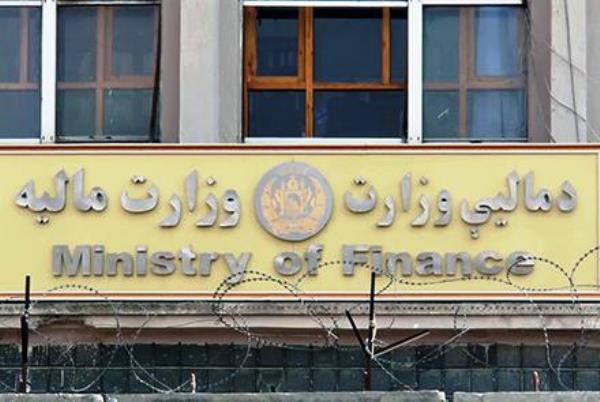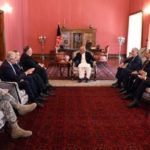Alice G. Wells, the US’s State Department’s principal deputy assistant secretary for South and Central Asia, who called reports of President Ghani’s decree to break up the Ministry of Finance “troubling,” on Tuesday responded positively to news that Ghani had reversed the decision.
In a tweet, she “welcomed media reports” that President Ashraf Ghani had reversed his decree to divide Afghanistan’s Ministry of Finance.
But first Vice President Amrullah Saleh, in response to Wells’ tweet, claimed that Ghani’s original decree–to divide the ministry–was “never signed,” and was in fact “fake news”:
“…the decree you are referring to was never signed and no part of the Finance Ministry was trimmed. It was all rumors and Ashraf Ghani just clarified the position of (the Presidential Palace). It has been an issue of communication. Let’s fight FAKE NEWS together,” Saleh tweeted in response.
The Ministry of Finance has repeatedly spoken of structural changes in the ministry and the creation of three separate directorates based on the president’s decree.
But on Monday, the acting Finance Minister Abdul Hadi Arghandiwal said the president had changed his mind.
Arghandiwal said the decree had been made under special circumstances, but the decree would not be put into practice.
Local and international voices were raised in response to reports of the Ministry of Finance (MoF) division into three separate government institutions.
On March 31 the United States Institute of Peace (USIP) wrote that the dismembering of the Ministry of Finance in this manner would cripple the government body.
The USIP report stated that “moving key ministry functions to the president’s office is bad for governance, development, and the sustainability of peace.”
The State Department’s Alice Wells tweeted about the “troubling” USIP report, which described the Afghan government’s “carving out” of parts of the MoF to bring them under Palace control. Wells said: “The Afghan people need an accountable government.”
But no government official denied the order at the time when it was broadcast in the media.
“Officials from the Ministry of Finance, as well as the Afghan parliament and the Afghan people, saw and heard that the order had been issued and there was no room for discussion. Eventually, pressure from civil society, members of parliament, and Afghanistan’s international partners impelled the president to withdraw his previous order,” said Ziauddin Zia, a parliament member.
At the same time, a new presidential decree shows that the same decision has been made about the Ministry of Mines and Petroleum.
Based on the president’s decree, parts of the Ministry of Mines, including a deputy minister’s office, are set to become independent directorates.
“The ministry itself cannot on its own do the bidding, exploring, and self-monitoring and also be able to create the conditions that are necessary for development; therefore, the creation of offices was a must,” said Abdul Qadeer Mufti, spokesman for the ministry of mines and petroleum.
“The government is trying to make all the country’s resources exclusive to the Presidential Palace,” said Abdul Qadir Jelani, an economic expert.
Under the decree, the Ministry of Mines will play a policy-making role, and the ministry’s responsibilities in the field of mining contracts and revenues will be handed over to the Independent Mines Development Authority.
Earlier, a number of lawmakers said that with such decrees the president wanted to move the revenue-generating sectors under the umbrella of the Presidential Palace.













